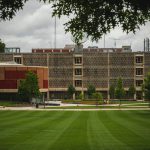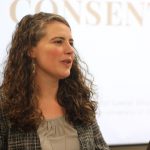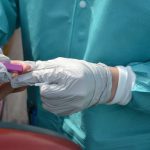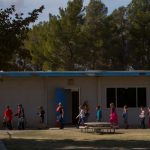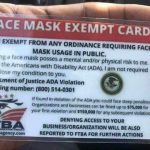While about three-quarters of U.S. universities have declared their intentions to offer in-person classes this fall, many are facing opposition from faculty members concerned for their safety. Nationwide, one of every three tenure-track professors is 55 or older, putting them at increased risk of contracting Covid-19. Some of them charge that their university’s protocols for providing accommodations are too restrictive.
Sarah Curtiss, an assistant professor with UD’s School of Education, recently published in the Journal of Policy and Practice in Intellectual Disabilities an approach to assessing risk factors for sexual assault against people with intellectual and developmental disabilities. Curtiss says this population is uniquely vulnerable to sexual assault because protective policies are not enforced, sex ed is uncommon and direct support professionals are rarely given specialized training.
Disabilities Law Program attorney Elizabeth Booth writes that staff working at group homes for adults with disabilities and psychiatric hospitals like the Delaware Psychiatric Center must be tested for Covid-19 to ensure the safety of all residents and employees. While the Division of Public Health mandates testing for long-term care facility staff, these two categories of residence have been left off the list.
The American Academy of Pediatrics issued guidance stressing that schools should resume in-person instruction this fall if possible, citing evidence that remote learning contributes to learning loss, social isolation and mental health issues disproportionately affecting students with learning disabilities and those from other minority groups. The academy’s statement emphasizes health precautions, including accommodations for students with special health care needs, but does not address educators’ health.
The Delaware Department of State says it has received multiple reports of individuals producing a fake authorization card claiming Americans with Disabilities Act protections for not wearing masks. The card threatens action by the “Freedom to Breathe Agency,” which is not a government agency. While masks are strongly recommended or required by many businesses, there are exceptions for those with certain medical conditions.

